【初中·外教公開課】 不同的課型 同樣的精彩——初中高端英語項目外教公開課記實
發(fā)布日期:2021-12-06 信息來源:
為了全面提高組內(nèi)教師教學(xué)水平,,提升課堂教學(xué)質(zhì)量,,促進外籍教師之間相互學(xué)習(xí)和交流,初中高端英語項目組初二外教Mr.Jack和Mr.Tabish展示了兩節(jié)不同課型卻同樣精彩的公開課,,項目組中外籍教師觀摩聽課,。
課堂一:奇思妙想,,妙筆生花---Mr.Jack帶你走進奇妙的語法寫作世界
Mr.Jack給學(xué)生帶來了一堂頗有挑戰(zhàn)但不乏趣味,并激發(fā)學(xué)生奇思妙想的語法寫作課,。Mr.Jack先展示了本堂課的learning objectives讓大家明確了本節(jié)課的學(xué)習(xí)任務(wù),。接著,通過例句讓學(xué)生體會“the second conditional”第二條件句的具體用法,,即表示現(xiàn)在或?qū)聿豢赡軐崿F(xiàn),,或?qū)崿F(xiàn)的可能性很小的一種假設(shè),并讓學(xué)生通過觀察例句進一步總結(jié)第二條件句的句式結(jié)構(gòu),。

然后,,教師通過設(shè)計不同的教學(xué)活動,來讓學(xué)生熟悉主句和從句部分的不同結(jié)構(gòu),,比如“If I were invisible, I would ___”, If I ___, I would run away”讓學(xué)生發(fā)散思維,,進行造句練習(xí),或是句子改錯,。教師通過提供不同的情境或結(jié)果,,讓學(xué)生盡情發(fā)揮想象力并分享,充分調(diào)動了學(xué)生學(xué)習(xí)的積極性,。
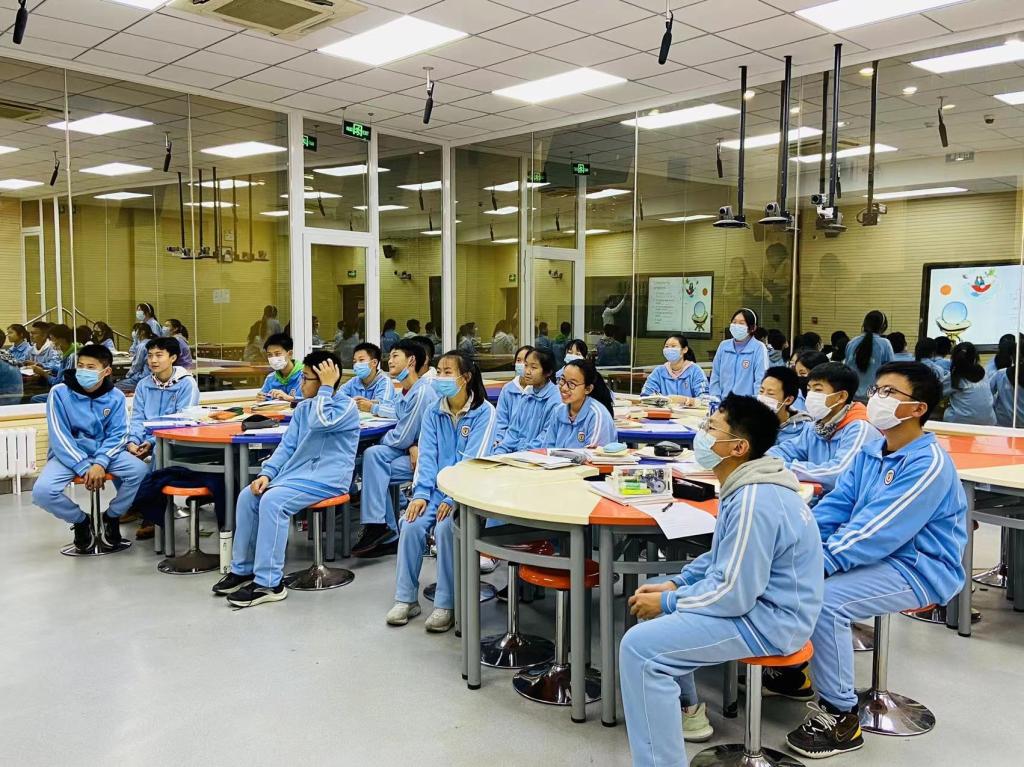
此外,,Mr.Jack還補充了wish的用法,讓學(xué)生更好的暢想和預(yù)設(shè)未來,。接著,,一張圖片深深的吸引了大家的注意力—the monkey’s paw,得到它的人可以實現(xiàn)三個愿望,,到那時許愿僅僅只是開始,,由一個愿望會引起的一系列的變化,最終會如何結(jié)局呢,,一切皆是未知,。外教通過播放一個視頻讓學(xué)生了解猴爪,“If you received a monkey’s paw, what wishes would you make? How would they backfire?”如果你得到了一個猴爪,,你會許一個什么樣的愿望,?愿望又會如何適得其反呢,?Mr.Jack引導(dǎo)學(xué)生們開始了一場奇幻之旅。

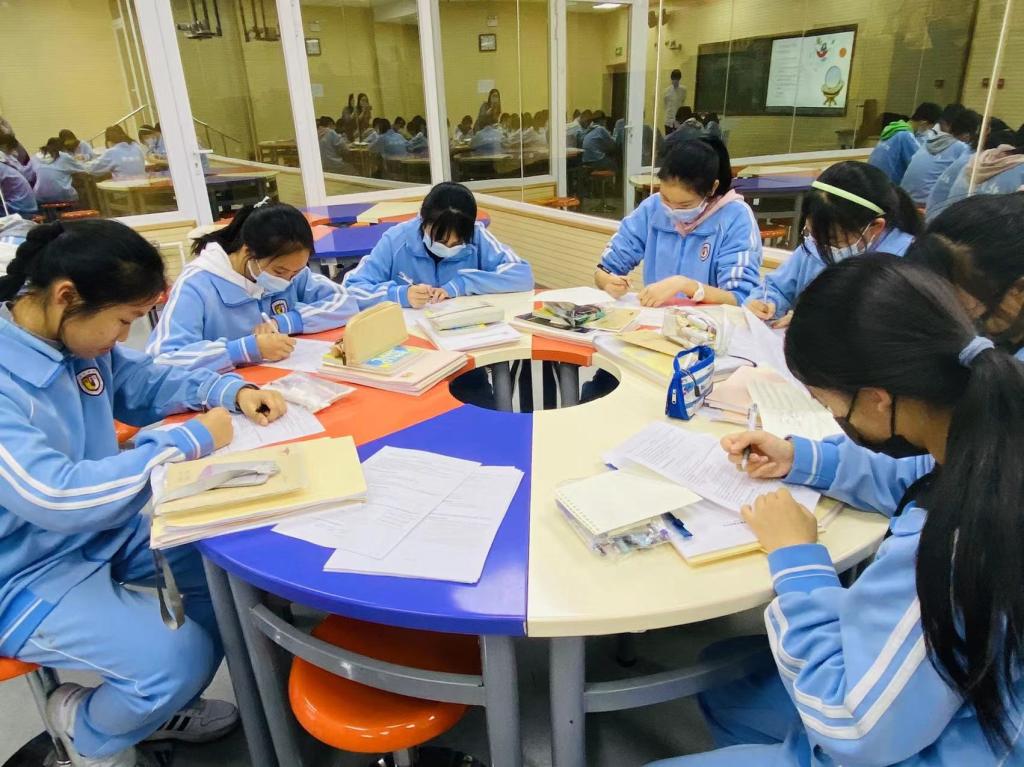
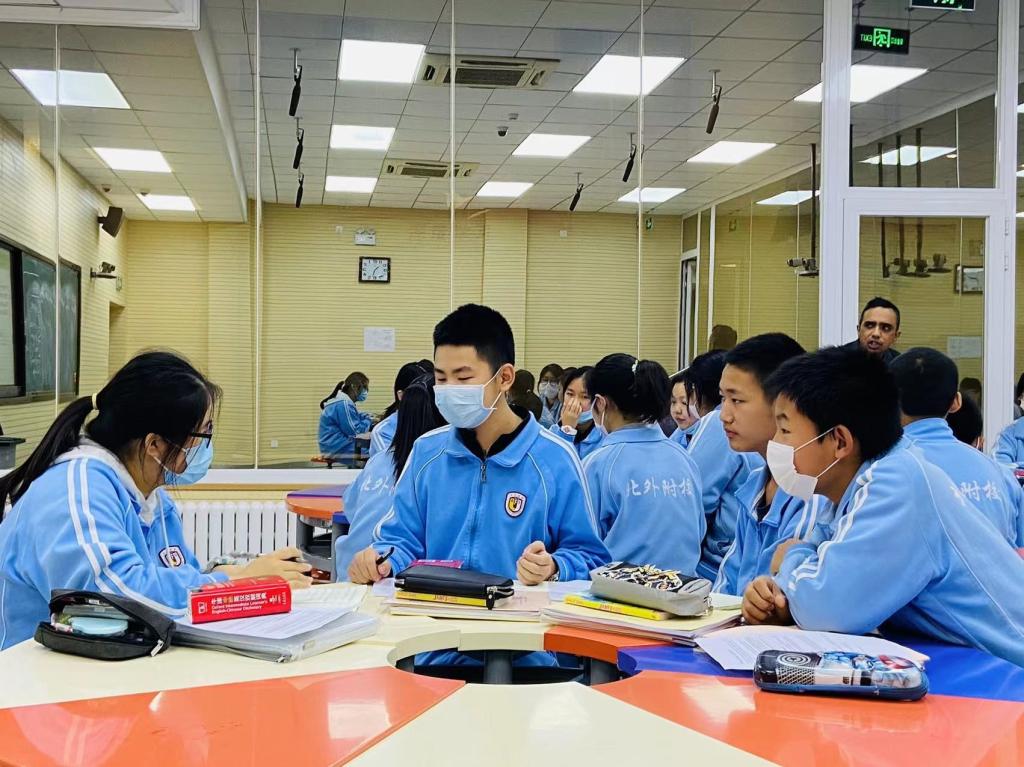
課堂二:世界美味,,美美與共---Mr.Tabish與你一起探討美食與我們的聯(lián)系
提及美食,,最能讓人回味的就是家鄉(xiāng)小吃或是傳統(tǒng)美食。美食給人帶來的不僅僅是味覺上的享受,,更能引發(fā)人們更多的思考,。首先,Mr.Tabish以來自不同國家美食的視頻引入world cuisine這個話題,,激發(fā)學(xué)生學(xué)習(xí)的興趣,。隨后,便通過美食圖片讓學(xué)生猜測所在的國家,,并提問人們?yōu)槭裁磿霾煌拿朗常瑢W(xué)生們紛紛發(fā)表自己的觀點,, 如“滿足生存的需求survival”,,“給人們帶來美好的回憶sweet memories”,更是“一種文化遺產(chǎn)cultural heritage”,。
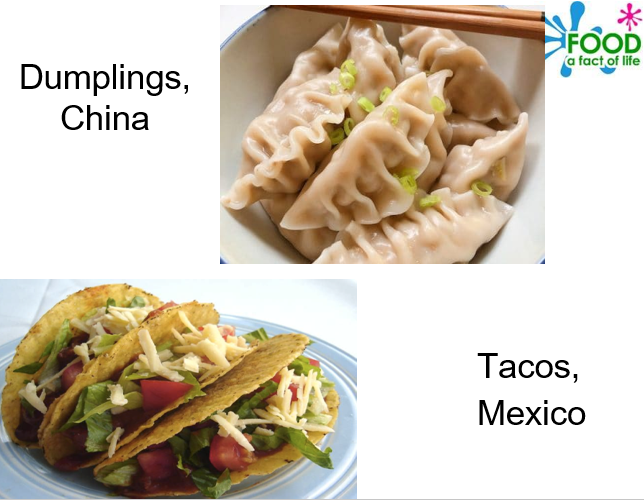
接著,,教師讓學(xué)生讀一篇關(guān)于美食的文章,讓學(xué)生從文章中明確美食和我們的聯(lián)系,。在文中,,學(xué)生逐一分享對美食的理解:與家人的記憶、營養(yǎng),、懷舊,、文化遺產(chǎn)等等。
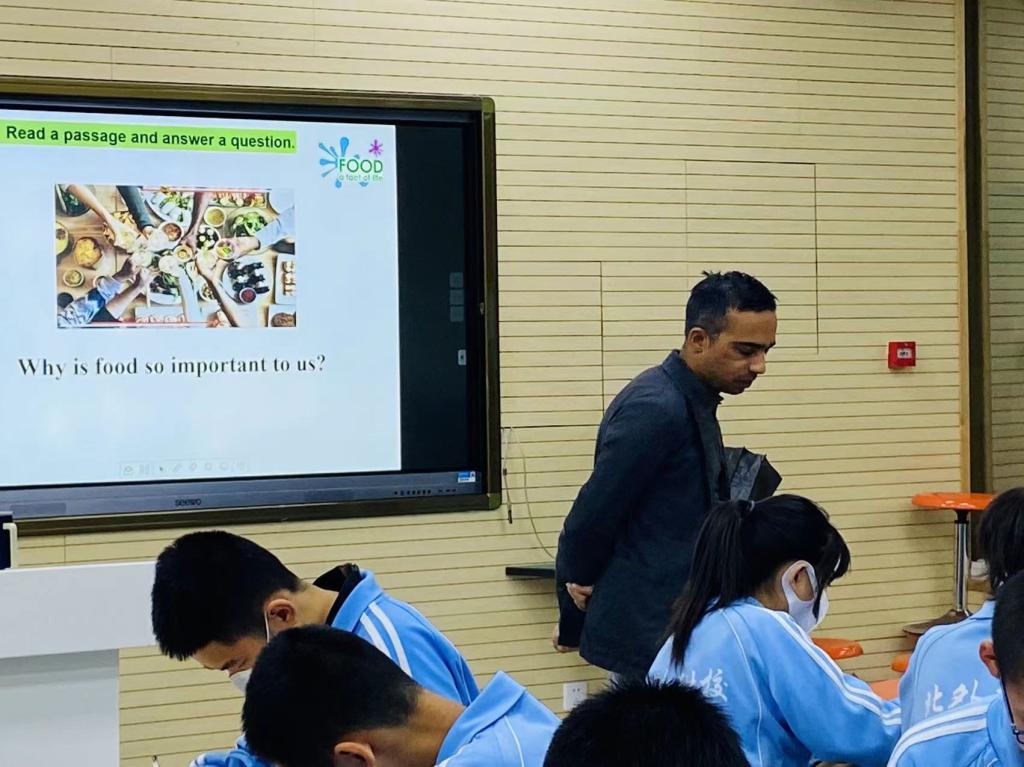
最后,,Mr.Tabish讓學(xué)生們進行小組合作分享一個國家的美食,,從人們什么時候吃這個食物,食物所包含的含義等方面進行探討和分享,。

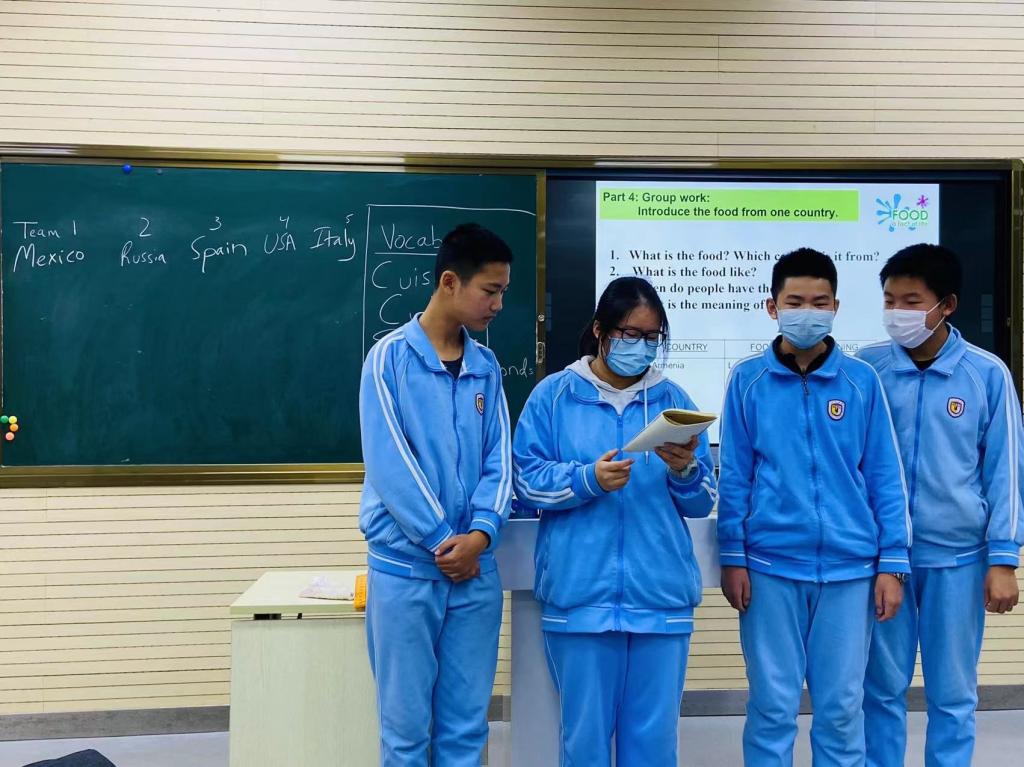
在這兩節(jié)公開課中,,教師通過啟發(fā)、例舉,、提問或反問等引導(dǎo)并激發(fā)學(xué)生思維,,自然互動,有效促進了學(xué)生積極參與課堂,。學(xué)生們用英語自信地表達,,增強了英語學(xué)習(xí)的自信心,提升了英語學(xué)習(xí)的內(nèi)驅(qū)力,。

課后,,中外教共同參與公開課的評課與交流,,表達對本堂課的聽后感受,有共鳴,、也有思維的碰撞,。此次公開課交流提升了教師專業(yè)素養(yǎng)和教學(xué)基本功,促進了全體教師專業(yè)自我發(fā)展,。本次活動全程錄像,,資料組內(nèi)共享,作為后續(xù)學(xué)習(xí)提高的資源,。
【外教Mr.Jack的反思】
The open class introduced students to using the second conditional. The primary aims were understanding when to use the second conditional, becoming confident using it in a variety of contexts, understanding the grammar behind it, and using it to discuss the story of ‘the Monkey’s Paw’. The class progresses in difficulty, the opening questions being simple and familiar. By the end of the class, the content becomes reasonably advanced. The class used a mixture of writing, discussion, groupwork, videos and exercises to effectively communicate the information and keep students engaged. I chose the topic of the Monkey’s Paw as students were already familiar with the story as we had discussed it over Halloween. It was a topic that allowed them to be creative, to use the second conditional to express themselves, and seems to engage their interest.
The students remained engaged throughout the class, were able to complete the classwork with reasonable accuracy, and worked well with other students. I tried to involve every student in the class at some point. Students were willing to contribute and generally seemed to follow the discussions. If I were to teach the class again, I would provide more scaffolding for the writing task, as some of the students seemed to find it quite difficult.
公開課向?qū)W生介紹了使用第二個條件,。主要目標是了解何時使用第二個條件,在各種上下文中自信地使用它,,理解其背后的語法,,并用它來討論“猴爪”的故事。課程在難度中進行,,開場問題簡單而熟悉,。到課程結(jié)束時,內(nèi)容變得相當先進,。該課程結(jié)合使用寫作,、討論、小組合作,、視頻和練習(xí)來有效地傳達信息并保持學(xué)生的參與度,。我選擇了猴爪這個話題,因為學(xué)生們已經(jīng)熟悉了這個故事,,因為我們在萬圣節(jié)討論過這個故事,。這是一個讓他們有創(chuàng)造力的話題,可以使用第二個條件來表達自己,,并且似乎引起了他們的興趣,。
學(xué)生在整個課堂上都保持參與,能夠以合理的準確性完成課堂作業(yè),,并且與其他學(xué)生合作良好,。如果我再教這門課,我會為寫作任務(wù)提供更多的語言支撐,,讓學(xué)生寫得更加順暢,。
【外教Mr.Tabish的反思】
For my open class, I chose a topic to show the connection between food and culture. What motivated me to choose this topic is that students will be enthused by it plus it’s an important topic to remind us of the wonderful diversity that we have out there – food brings us closer to many cultures without even leaving our countries.
We started with some food and cultural related words that they would need to use throughout the lesson before we formally started the lesson, students wrote down the words. First, a world cuisine video was shown to pique their interest, and eliciting what they deduced from the video. They successfully highlighted the diversity that various cultures bring to the food. I also showed them pictures of food so they can guess where the dishes were from, this further aroused their interest on the connection between food and culture.
The lesson included strategies on how to gist and skim read, connect words associated with food & culture. The students discussed with each other the importance of food and culture, and gave their opinions. They also managed to delve further into the topic with the reading passage which was broken down into sub headings to better aid their learning and understanding. The task itself was both challenging and worthwhile for the students as they picked up new words plus understood how central food is to many cultures and vice versa. They also had the opportunity to work in a group by focusing on a particular country. Each group had a different country to present, hence, they learnt from each other the connection between food and culture in various parts of the world.
There was a clear weakness. The complexity of the text was challenging for the lower ability students, so I should have simplified the text even further. Perhaps debating strategies should have been adopted so students could have received the opportunity to practice their oral skills using the jargon.
對于我的公開課,我選擇了一個展示食物與文化之間的聯(lián)系的主題,。促使我選擇這個主題的原因是學(xué)生們會對它充滿熱情,,它提醒我們外面的奇妙多樣性——食物讓我們無需出國就可以接近文化。
首先,,我展示了一個世界美食視頻來激起他們的興趣,,并引出他們從視頻中得出的結(jié)論,。他們成功地理解了各種文化給食物帶來的多樣性。我還給他們看食物的圖片,,讓他們猜出這些菜是從哪里來的,,這進一步激發(fā)了他們對食物和文化之間聯(lián)系的興趣。
另外,,通過閱讀讓學(xué)生理解主旨,、略讀、猜測詞義的閱讀策略,。最后,,學(xué)生們互相討論了飲食和文化的重要性,并發(fā)表了自己的看法,。這項任務(wù)本身對學(xué)生來說既具有挑戰(zhàn)性又值得,,因為他們學(xué)會了新單詞并了解食物對許多文化的重要性。
如果我再設(shè)計次課的話,,我應(yīng)該進一步簡化課文幫助基礎(chǔ)薄弱的孩子更好的理解,。另外,也可以嘗試采用辯論策略,,以便學(xué)生有機會使用行話練習(xí)口語技能。




